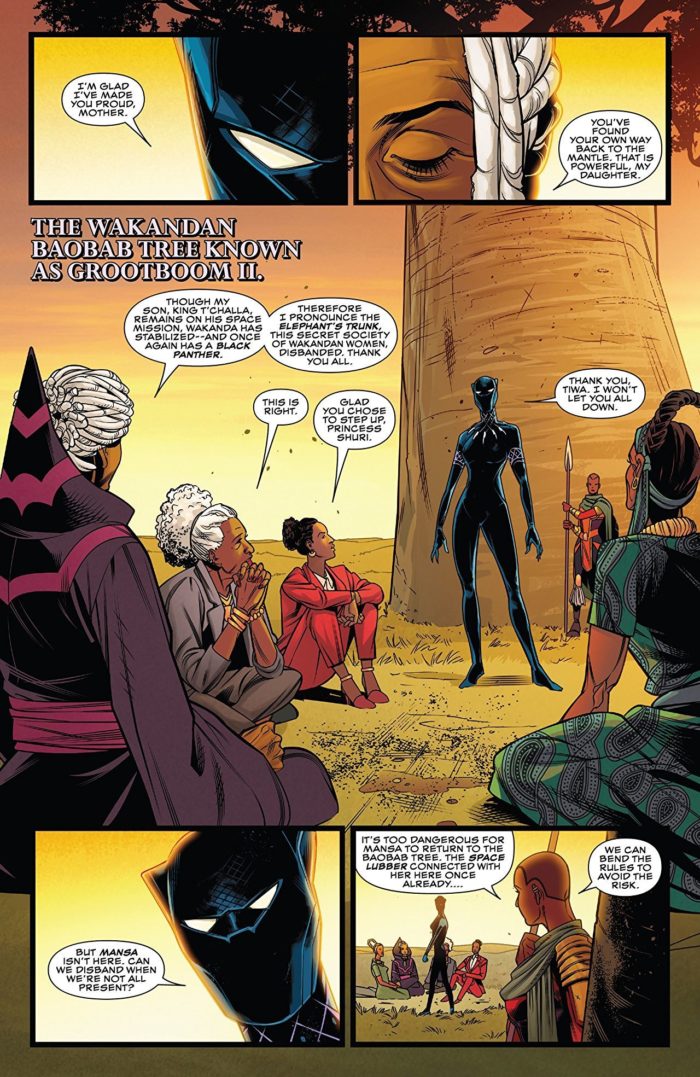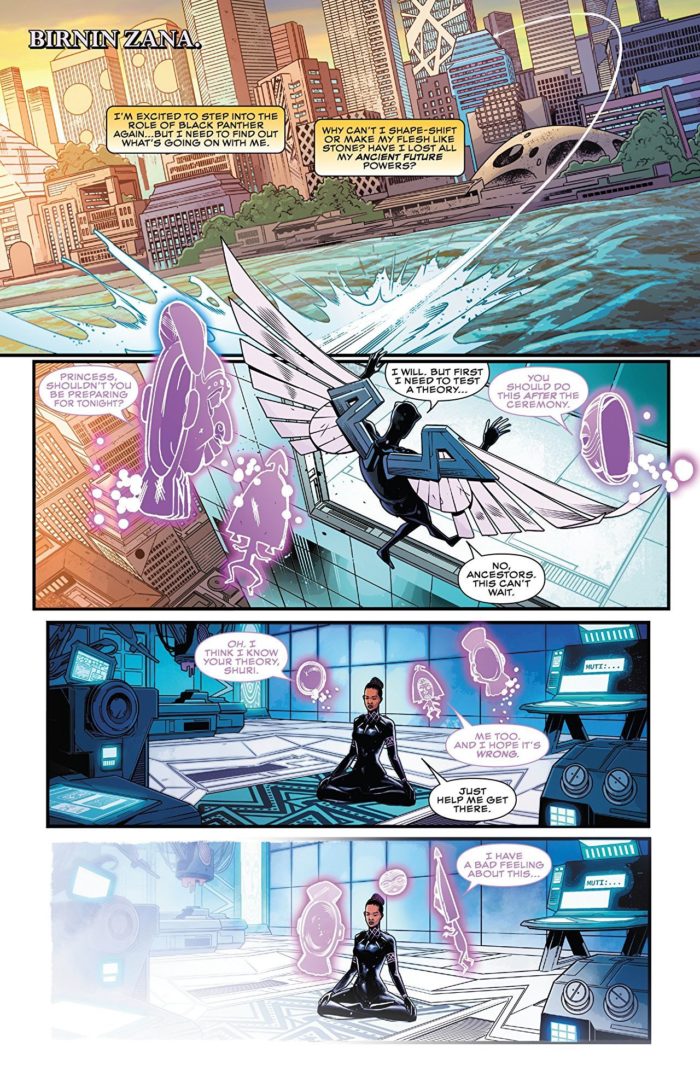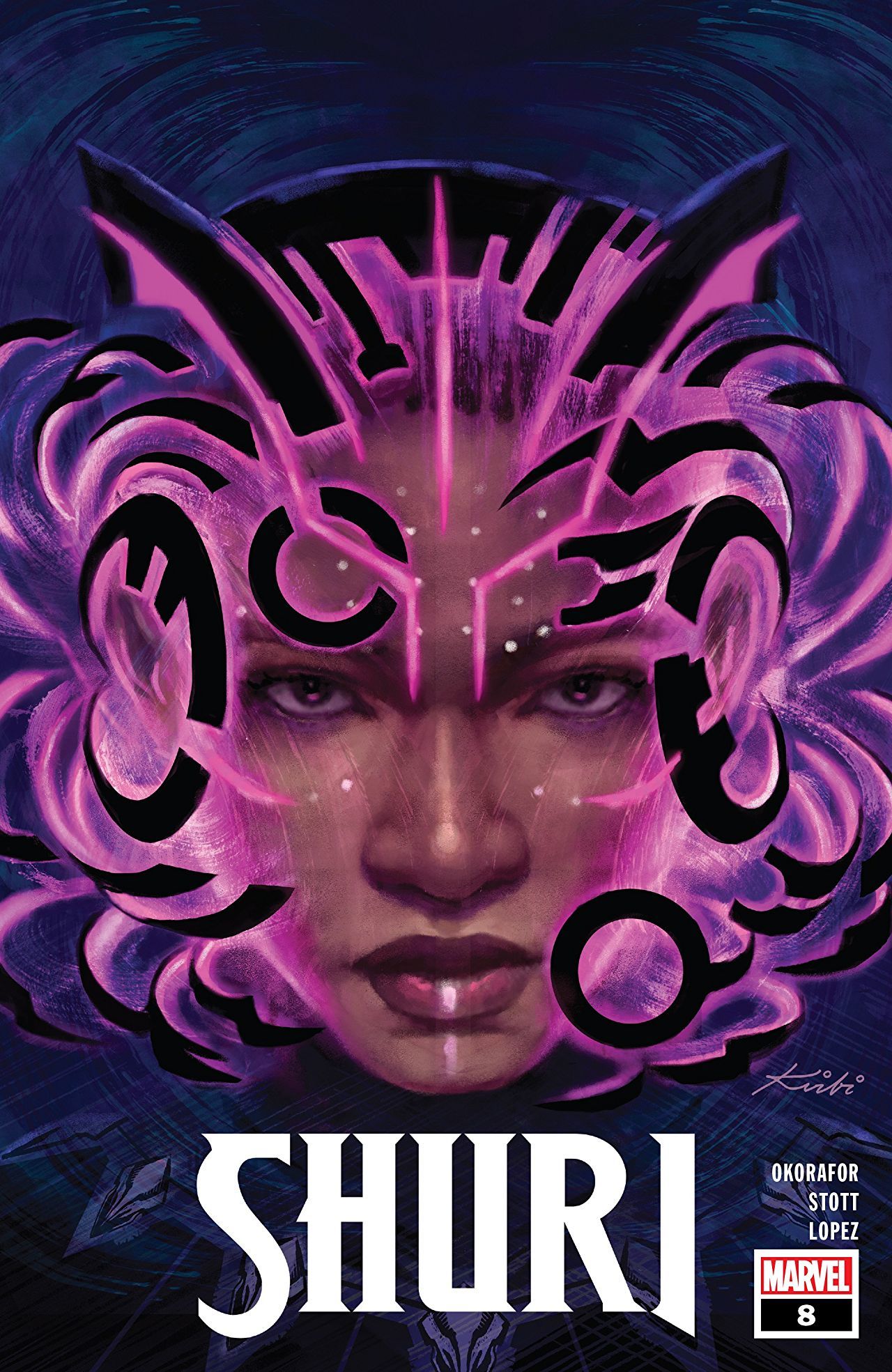Writer: Nnedi Okorafor / Artists: Rachael Scott & Carlos Lopez / Marvel
“Don’t Stall!” “I Never Stall.”
You know when you forget something and it messes up your plans, so now you gotta retrace your steps before everything else falls like a domino effect? Shuri’s going through the same thing, y’all. Her memories are linked to her powers as The Black Panther, and an extremely important memory was wiped clean. I’m not gonna lie to you, it took everything in me to not say: “that’s a hot metaphor, let’s unpack” like the literature analyzer that I am. Well, I’m here to tell you that once again I lacked the power to resist (I probably never will, either). So, “let’s unpack”.

Erasure and Our Connection to Spirituality
Consider this: one constant throughout modern times is the erasure of black history and its contributions to society. The American public school system narrows it down to a couple of warped excerpts from the speeches of “acceptable” civil rights leaders to support the inclusion of whiteness in the function of daily life. In turn, this tends to separate our reality from the importance of our history and our links to future improvements as a culture. Shuri begins to lose the flexibility of her powers — the sturdiness and ability to shape-shift her flesh — after her loss of connection with an important memory which ignited that power of the suit. Her search to regain that memory in the spiritual realm is her attempt at reversing such an erasure.
Shuri #8 connects spirituality to the past. From the Baobab tree to the lost village, what unifies these experiences? Why does it affect the characters’ perceptions and abilities in “the now”? Erasure takes on different forms. Wanting to ignore our memories or our history, it follows us annoyingly in our own heads and later projecting itself before our eyes. I love how Shuri’s series never fails to remind us the importance of spirituality in this way. What we might have forgotten is not lost, but rather to be searched for. Certain relics before us have the ability to ignite memories and keep in touch with the spiritual realm, to serve as a meeting point across various generations (i.e.: the Baobab tree). These meeting points allow us to take on different abilities (i.e. shape-shifting in Shuri), and analyze the connections within our own experiences for application our daily lives.

Our Faded Connections
At times these memories haunt us, transforming into different entities that take over our well-being. Being in touch with them can open up both previous trauma and ways that were used to escape it. Not all memories bring back joy. Sometimes they hold us hostage. I feel like this comic was in tune with that sentiment. Shuri #8 opened my eyes to the fact that our own memories our sometimes the villain in our story. We can’t always overpower them and we may not be able to vocalize them, there are people to help us (…did Shuri #8 give me a lesson or two on how to deal with depressive episodes? Probably.) The Okorafor-Scott-Lopez team took us on a journey through quips, colors, and famous tunes to help readers come to terms with combating erasure on our own spiritual journeys.
Reading Shuri #8? Find BNP’s other reviews of the series here.
Are you following Black Nerd Problems on Twitter, Facebook, Tumblr or Google+?



Show Comments